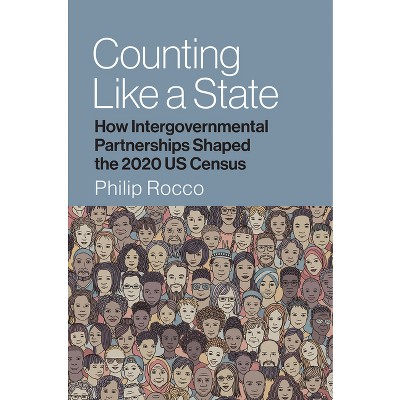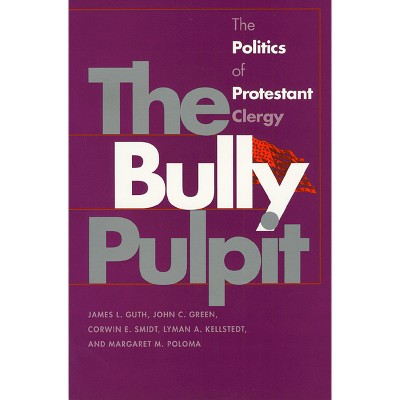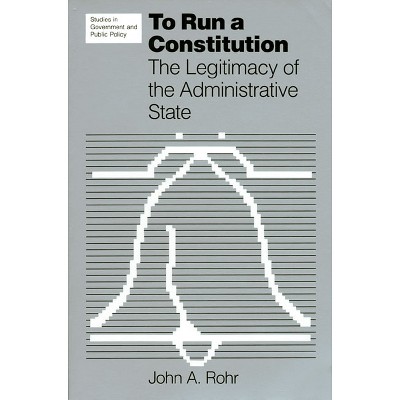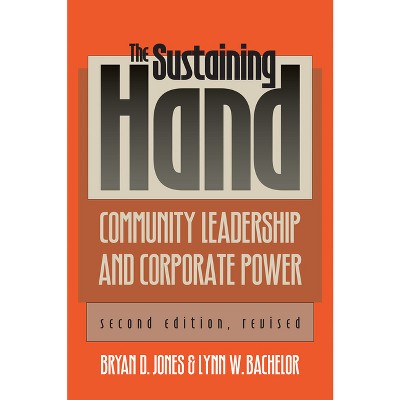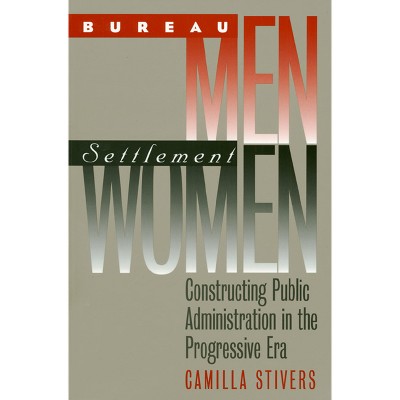Sponsored

The American Road - (Studies in Government and Public Policy) by Katherine M Johnson (Hardcover)
In Stock
Sponsored
About this item
Highlights
- In The American Road Katherine M. Johnson develops a bold new theory for how the American highway system has taken on such outsized scale and complexity by emphasizing the emergence of a powerful administrative apparatus in the American federal system.
- Author(s): Katherine M Johnson
- 232 Pages
- Transportation, General
- Series Name: Studies in Government and Public Policy
Description
About the Book
The American Road develops a new theory of the outsized dimensions of the American highway system.Book Synopsis
In The American Road Katherine M. Johnson develops a bold new theory for how the American highway system has taken on such outsized scale and complexity by emphasizing the emergence of a powerful administrative apparatus in the American federal system. Established in 1914 expressly to intervene in the congressional debates of the era, the American highway bureaucracy consisted of forty-eight state highway officials acting in and through their self-organized association, the American Association of State Highway Officials. Johnson's central argument is that this new institution occupied a similar position relative to the American state as political parties and courts did. The capacity to organize across a complex constitutional order enabled it to control the purpose and allocation of federal highway aid for the better part of the twentieth century. Johnson investigates this new conception of the American highway bureaucracy, showing specifically where and how that extraconstitutional authority emerged, expanded, and manifested itself in the legislative history, physical dimensions, and geographical reach of the emerging highway system. The American Road reveals that all of the major highway legislation approved by Congress from 1916 to 1941 was collectively developed and advanced by state and federal highway bureaucrats drawing on the new authority conferred by the system of federal grants-in-aid, which required state legislatures to provide a state matching grant and local governments to relinquish control over decisions of location and design. The capacity to advance their policy aims as both the advice of experts and the will of the states not only secured the new highway program against renewed opposition in Congress in the 1920s but also won the strong support of the motor vehicle industry and set the stage for even more impressive policy gains of the 1930s when highways became the largest category of federal emergency public works. That collective authority, however, required a high threshold of consensus to secure and maintain, producing not just a narrow one-size-fits-all approach to technical issues but also a striking incapacity to respond to changing conditions. Johnson completes her compelling narrative by identifying the source of the interstate highway plan, first proposed in 1939 and finally funded in 1956, in the internal dynamics of and external threats to that extraconstitutional authority.Review Quotes
"Scholars researching transportation history, public policy, and American federalism will have much to learn from this text."--H-Net Reviews
"Katherine Johnson's The American Road stakes out important new territory in the political history of twentieth-century American transportation. Her twin focus on the emergence of an expansive, state-level administrative apparatus and a federal highway system that deferred substantial road-building authority to the states provides an important corrective to historical narratives that overstate the centralizing forces of a national bureaucracy. It is no easy feat to capture the extensive regional variation contained within a federally sponsored, state-managed highway construction system, but Johnson offers up fresh insights with grace, clarity, and analytic force."--Michael R. Fein, author of Paving the Way: New York Road Building and the American State, 1880-1956
"This fascinating and analytically rich study offers a new explanation for the development of the American highway system. It moves beyond existing accounts in making the case for viewing roadbuilding and infrastructural development as crucial tasks of state and federal governance. Katherine Johnson presents a persuasive argument in favor of locating the history of the American road system in institutional and bureaucratic contests over power, politics, and geography."--Jason Scott Smith, professor of history and graduate director, University of New Mexico, and author of "Understanding the New Deal in an Age of Trump and Brexit"
"The American Road tracks the political maneuvering behind the greatest public works program in history: the twentieth-century US highway network. Through deep archival digging and brilliant analysis, Johnson overturns the received wisdom about the logic behind the (un)holy alliance of state highway officials who laid down four million miles of pavement. This story adds a vital new chapter to our understanding of American federalism and how it has served the rapid (if rapacious) spatial development of the country."--Richard A. Walker, professor of geography emeritus, University of California, Berkeley
"Johnson's book elegantly lays out the origins and dysfunctions of the American highway system. Led by the small but mighty Bureau of Public Roads, a nascent intergovernmental highway bureaucracy including state highway officials created a 'powerful extraconstitutional authority' that overcame the complexity and limitations of the American state. This book is a powerful addition toward our understanding of modern American statebuilding during the twentieth century."--Kimberley Johnson, professor of social and cultural analysis, New York University
"The American Road offers a powerful new perspective for understanding how the automobile came to define American life. It was not a cultural love affair with the car but rather the extraordinary influence of organized state highway officials that propelled the expansion of the highway system. Drawing on a wealth of historical research, Johnson shows how these officials leveraged their special power within the federal system to dominate transportation policymaking. A must-read for transportation scholars and for students of American political development."--Margaret Weir, Wilson Professor of International and Public Affairs and professor of political science, Brown University
Shipping details
Return details
Trending Non-Fiction






